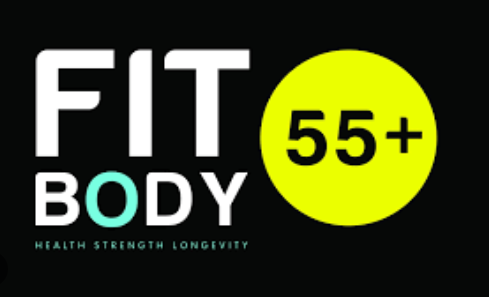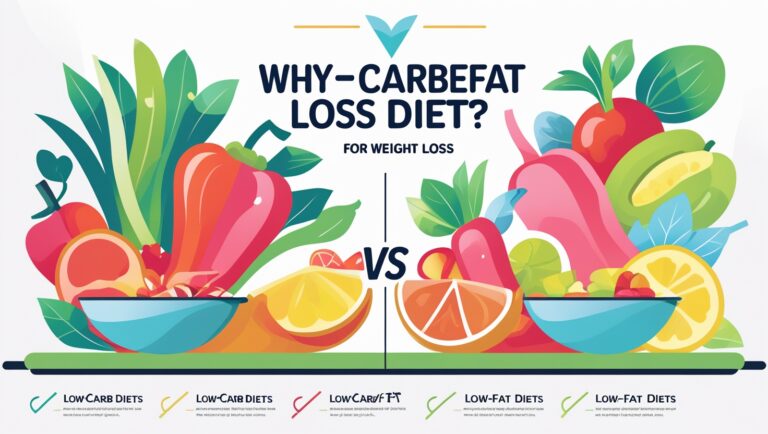Introduction
Body health is the good, old-fashioned well-being; that is, it is looking at the quality of a person’s physical, mental, and emotional health. Technology, sedentary lifestyles, and fast-paced routines engulf lives so much today that proper body care is a must-do more than ever. Proper body health is achieved through a holistic approach in diet, exercise, mental health care, and preventive measures. This article is aimed at providing comprehensive body health for better insights into various aspects in keeping a human being healthy and fit.

Importance of Body Health
Being free from disease is not the same as maintaining good body health. Healthy living happens with vitality and purpose. Good health not only increases quality but also enhances productivity. Healthy maintenance of people decreases the risks of chronic illnesses like heart or lung disorders or cancers. The choices that are made in diet and physical activities and mental health have a very direct bearing on how we feel and how well our bodies will perform over time.
Key Elements of Body Health
Body health can be divided into several key elements that contribute to proper well-being. These elements are as follows:
- Nutrition Only
- Physical activity Only
- Mental and emotional well-being Only
- Sleep
- Preventive health care
Each one of these plays a very important role in maintaining balance in the body.
1. Nutrition: The Foundation of Health
Good nutrition supports a healthy body and what we put in does affect our energy, immune function, and healing and regenerative capacities. A well-balanced diet offers the body the necessary nutrients, vitamins, and minerals for it to function accordingly.
What’s the Purpose of Having a Balanced Diet?
A satisfactory diet should comprise a variety of food in the right amount for the body to have its share of carbohydrates, proteins, fats, vitamins, and minerals. Consuming whole, unprocessed foods that include fruits, vegetables, lean proteins, and grains ensures that the body gets whatever it needs for optimal performance.
- Carbohydrates: The body’s primary source of energy, though good complex carbohydrates from whole grains, fruits, and vegetables will give energy slowly in comparison to simple carbohydrates from sugars and foods containing a lot of added sugars that will make one go up and down like a rollercoaster.
- Proteins: Essential for repairing and building tissues. So, include some lean meats, beans, legumes, and nuts as good sources.
- Fats contribute to hormone production, the structure of cells, and even energy. Healthy fats, which include avocados, nuts, seeds, and fish, are beneficial, while trans fats and saturated fats linked to processed foods have long been thought to contribute to heart disease.
- Vitamins and minerals are responsible for many functions – immunity, bone health, cognitive function, and many more. Micronutrients, such as iron, calcium, magnesium, and vitamin D, are what keep a body healthy.
Hydration: An Essential Part of Nutrition
Water makes up 60% of the human body and plays a crucial role in each body part, which includes digesting food and getting absorbed by the body, regulating the temperature, and expulsion of waste. Hydration is an enabler of the smooth body machine. It is generally recommended to have at least 8-10 glasses of water each day, but it is basically according to a person’s lifestyle, climate, and health issues.
END
2. Physical Activity: Staying Fit
Physical activity is a modulator of good health of the body. Its observed health benefits include improved cardiovascular strength, better built muscles and bones, and positive mental repute. Exercise also prevents excessive body weight and counters the risk of chronic ailments such as hypertension, type 2 diabetes, and obesity.
Types of Exercises
Exercise types are categorized into different exercises for distinct purposes of preserving bodies.
- Aerobic Exercise: These exercises always go with walking, running, swimming, and cycling that stimulate heart rate to enhance cardiovascular endurance. Simultaneously, aerobic exercises also burn calories and manage fat levels, hence retaining healthy weights.
Strength Training: Increasing of mass through the strength training with weights or resistance bands improves bone density and metabolic function. With age, people lose muscles largely; hence, prevention by strength training has to be done at intervals to maintain mobility. - Flexibility and balance exercises: This ranges from simple stretches, yoga, and Pilates to provide the flexibility and balance required to decrease the chances of injury while keeping the posture right.
- High-intensity interval training (HIIT): HIIT alternates between short bursts of activity and periods of rest. HIIT is said to increase fat burn, build muscle, and enhance cardiovascular fitness within a minimum time frame.
WHO guidelines identify that everybody should undertake at least 150 minutes of moderate intensity aerobic physical activity or 75 minutes of vigorous intensity physical activity per week and muscle-strengthening activity on at least two days a week.
3. Mental and Emotional Well-Being: Feeding the Mind
Body health involves not only physical fitness but also psychological and emotional well-being. The seriousness of stress, anxiety, and depression can have severe effects on the body, leading to a number of problems such as a weakened immunity system, digestive disorders, and heart disease.

Mind-Body Connection
The brain and body, although separate, have interlinked functions, and mental wellbeing clearly interconnects with physical health. Chronic stress, for example, triggers the release of cortisol in the body-a hormone resulting in effects of repossessed fats, increased blood pressure, and a weakened immune system. Positive emotions and mental clarity, on the other hand, contribute to lower levels of stress, better hearts, and a stronger immune system.
Strategies for Mental and Emotional Health
- Mindfulness and meditation: This includes mindfulness, which decreases the stresses and increases mental clarity. Meditation is also the best way to calm your mind, reduce anxiety, and improve sleep quality.
- Social connections: The strong support networks with close family, friends, and the community reduce feelings of isolation and contribute to emotional well-being. The greater interaction with family, friends, and the community, the more it would be possible to achieve a satisfactory life and reduce stress levels.
- Therapy and counseling: These can arm you with tools to handle emotional challenges, improve your relations, and give you resilience .
- Stress management techniques: The best way to manage stress is by deep breathing, yoga, journaling, and other hobby-oriented activities .
Why Mental Health Care Matters
Ignoring mental health may have intense complications for the body. Emotional distress for a long time can lead to having physical ailments like headaches, stomach ache, and lower immunity. Preventive measures are quite important to treat mental health and overall well-being.
Sleep: Body’s Healing Process
Sleep is a necessity to ensure the body remains in good health since it requires time to rest, repair, and regenerate. Lack of sleep impacts cognitive functions as well as mood and eventually physical health. Weight gain and weakened immune responses can occur, as does an increased chance of chronic diseases such as heart disease and diabetes.
The Sleep Cycle
Sleep occurs in cycles and is made up of stages that alternate between NREM and REM sleep. Each one of them is in the process of recovering the body:
- NREM sleep: The body repairs tissues and strengthens the immune system and builds bone and muscle.
- REM sleep: Information gets processed in the brain, and its integration and coding occur during this stage while dreaming occurs.
Recommended Sleep Duration
Total sleep time is different for everybody and varies with age, but these are the minimums established by the National Sleep Foundation:
- Adults: 7-9 hours per night
- Older adults: 7-8 hours per night
- Teenagers: 8-10 hours per night
Better Sleep Tips
- Routine – Go to bed and wake up at around the same time each day. This will help your body get used to a sleep schedule, thus regulating your internal clock.
- Create a sleep-friendly room: The bedroom should be dark, quiet, and cool. Using quality bedding and controlling noise levels can make it better to sleep
- No screens and blue light: Inhibitors of melatonin’s production lie in front of screens and blue lights that affect the production of melatonin.
- No stimulants : Avoid taking in caffeine, nicotine, and heavy meals near bedtime because they increase problems with sleep
5. Preventive Health Care: Taking Charge of Your Health
Preventive health care is the systematic follow-up by a patient with his or her doctor to detect health problems early. For example, regular check-ups, screenings, and vaccinations prevent potential health issues from arising. Prevention is always better than cure, and monitoring your health by being proactive can prevent the cases of more serious conditions.
Routine Health Screenings
A patient can detect health problems before they become critical by following up regularly with their doctor based on age, gender, and risk factors. For example, some screening tests encompass include:
- Blood pressure checking: This is a risk factor for heart disease and stroke.
- Cholesterol: High cholesterol is a risk factor for heart disease.
- Glucose blood: Blood sugar test can avert or at least diabetes can be kept under control.
- Cancer checkup: Mammogram, Pap smear, colonoscopy, and prostate exam are also important for diagnosing cancer in time.
- Bone density studies: The test should be conducted especially in postmenopausal women for detecting the onset of osteoporosis.
Immunizations
Vaccines prevent infectious diseases that cause significant impacts on health. Keeping in tandem with flu shots, HPV vaccines, and COVID-19 boosters holds the secret to being relatively healthy and seeing fewer outbreaks.
Health Check-ups
It is the regular visit to a healthcare provider for general check-ups-even when healthy-that provides the means through which body health can be secured. The early notice of possible health problems during regular check-ups secures that the body is functioning well.

Conclusion
The concept of body health is multifaceted and thus seeks attention to a number of aspects in life such as food, physical activity, mental wellbeing, and sleep. Such an approach to health is holistic and can contribute significantly to enhancing the quality of life of individuals, reducing the risk of chronic diseases, and prolonging, healthy life.
Keeping



